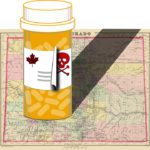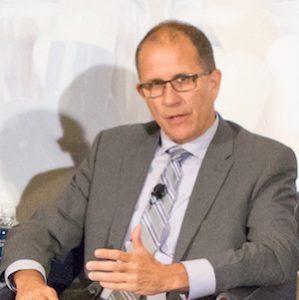Concerned about safety?
Are you a Colorado citizen or healthcare professional, such as a pharmacist, who is concerned about the steps Colorado is taking to expose citizens to drugs from outside the secure supply chain? Please reach out to us at editors@safemedicines.org.

Drug Importation in Colorado: An Overview
Current status:
On March 10, 2025, Colorado submitted an updated Canadian Drug Importation application, revising its February 2024 application to the FDA to import medicine from Canada. Review it here.
Read the contract with Colorado's Canadian seller, AdiraMedica (Contract, Amdt #1, Amdt #2), with Colorado's importer Premier Pharmaceuticals (Contract, Amendment #1, Amendment #2), or their recall supervisor Rocky Mountain Poison and Drug Safety (Contract, Amendment #1) .
How should we evaluate this program?
The program hasn't started yet so there's no way to measure whether it saved money or kept patients safe, both promises made at the time of passage. However, the 2003 Medicare Modernization Act contains requirements for safety requirements built into any such program.
Official actions and statements
- June 2025: PSM, the Pharmaceutical Research and Manufacturers
of America and the Council for Affordable Health Coverage submitted a second supplement to their May 2023 Citizen Petition. - March 2025: Colorado's Drug Importation Program, amended application and amended appendices list, A- SIP Sponsor, B- Foreign Seller, C- Importer, D- Required Data Elements, E- Actuarial Cost Analysis, F- Certification Reports, G- Figure Library, H- FDA Correspondence, I- Stakeholder Engagement.
- June 2024: PSM, the Pharmaceutical Research and Manufacturers
of America and the Council for Affordable Health Coverage submitted a supplement to their May 2023 Citizen Petition. - February 2024: Colorado's Drug Importation Program, amended application and amended appendices, A- SIP Sponsor, B- Foreign Seller, C- Importer, D- Drug List Data, E- Actuarial Cost Analysis, F- Certification Reports, G- Figure Library, H- FDA Correspondence, I- Stakeholder Engagement.
- December 2023: Colorado’s Drug Importation Program, Annual Report to the Colorado General Assembly
- May 2023: PSM, the Pharmaceutical Research and Manufacturers
of America and the Council for Affordable Health Coverage submitted a Citizen Petition (Docket No. FDA-2023-P-1773-0001), asking FDA to refrain from approving the proposal. They submitted supplements in June 2024 and June 2025. - March 2023: The FDA responds to Colorado's Proposal
- December 2022: Colorado submits a final application and appendices to the federal government. The Department of Health Care Policy and Financing publishes its annual report on the project.
- August 2022: Colorado’s Drug Importation Program: Frequently Asked Questions August 2022
- December 2021: Legislative Report from the Department of Health Care Policy and Financing on the implementation of the Prescription Drug Importation Program
- January 2021: The Department of Healthcare Policy and Financing publishes the second edition of Reducing Prescription Drug Costs in Colorado: Cost Drivers and Strategies to Address Them and An Invitation to Negotiate
- October 15, 2020: The Department of Healthcare Policy and Financing updates stakeholders: Slides
- September 23, 2020: Department of Health and Human Services Alex Azar certified that Canadian drug importation would pose no additional threats to consumers and would save Americans a significant amount of money on prescription drugs.
- June 10, 2020: The House Committee on Health & Insurance postponed SB20-119, which would have expanded Colorado's importation program beyond Canada, indefinitely.
- March 9, 2020: Colorado releases draft importation proposal and appendices.
- February 13, 2020: Colorado Health and Human Services Committee hearing on SB 119
- January 2020: The Colorado legislature considers SB20-119, which would expand importation from Canada to prescription drug suppliers from other nations.
- August 19, 2019: SB-19-005 Final Fiscal Note.
- May 16, 2019: Colorado SB19-005 is signed into Law
- October 11, 2019: The Department for Healthcare and Public Financing issues RFIs to pharmacies and wholesalers.
- November 2019: Colorado's Department of Health Care Policy & Financing held webinars to engage stakeholders: Slides
Planning documents
- SB19-005: Text of the Bill | Fiscal Note
- Requests for Information, October 11, 2019: Pharmacies | Wholesalers
- Responses to Requests for Information:
- The Partnership for Safe Medicines, October 22, 2019 : Pharmacies | Wholesalers
- PHRMA, October 25, 2019: Pharmacies | Wholesalers
Background / resources
Learn more about
- The Drug Importation Debate
- Fake Medicine in Colorado
- The Importance of U.S. Closed Drug Supply Chain
News coverage
Op-eds from the Experts
This editorial by Peter J. Pitts was published in The Washington Times on September 11, 2019. Mr. Pitts is president of the Center for Medicine in the Public Interest and a former FDA associate commissioner.
This editorial by Liam Sigaud was published by Inside Sources on August 27, 2019. Mr. Sigaud is an economic policy researcher who writes for the American Consumer Institute, a nonprofit educational and research organization.
This editorial by Dana McDougall was published in The Waterloo Cedar Falls Courier on August 26, 2019. Mr. McDougall, Pharm.D., BCPS, is a pharmacist with the Covenant Cancer Treatment Center in Waterloo, Iowa.
This editorial by Adam Fein and Dirk Rodgers was published in Stat News on July 11, 2019. In it, Fein and Rodgers warn that plans by states to create drug importation programs will open new pathways for counterfeit drugs to enter the U.S. drug supply chain…
In this editorial, which was published by the Fraser Institute on June 13, 2019, economist Dr. Kristina Acri argues against importation, concluding: “Diverting drugs meant for Canadian patients to the U.S. through state importation schemes will create shortages for Canadian patients and increase pressure on potentially unscrupulous suppliers to source drugs from wherever they can, opening the door to counterfeiters.”
Dozens of the most highly qualified law enforcement officials and former, senior staff at the U.S. Food & Drug Administration have conducted in-depth analyses that show Canadian drug importation will lead to a massive increase in counterfeit drugs entering the U.S.
In this piece, which was published in the Inside Sources on April 22, 2019, Michael Graham reviews the case against drug importation: “As Scott Gottlieb said in 2016 before becoming President Trump’s FDA chief…’There are simply too many channels for fake drugs to enter any importation scheme to forgo some meaningful controls.’”
In this editorial, which was published in Colorado Politics on April 17, 2019, Don Bell, a 30-year veteran of Canadian law enforcement and border protection, warns that Canadian drug importation will open the U.S. to counterfeit medicine and exacerbate drug shortages in Canada.
The editorial board of the The Wall Street Journal published this editorial on April 15, 2019. In it, they write:
“The argument that drug importation threatens the integrity of the drug supply is often dismissed because pharmaceutical lobbyists make it. But keeping the drug supply free from contaminated or counterfeit products is not easy, and the World Health Organization has warned that 1 in 10 medical products in the developing world are phony. It isn’t clear who is liable if counterfeits are found in Florida, but you can bet it won’t be the politicians.”
In this March 28, 2019 editorial for the La Junta Tribune-Democrat, Maine pharmacist Amelia Arnold explains her state’s experience with drug importation: “It is a concept that makes big promises in terms of quality and cost savings that it cannot, and will not, deliver on for the people of Colorado.”
- « Previous
- 1
- 2
- 3
- Next »








